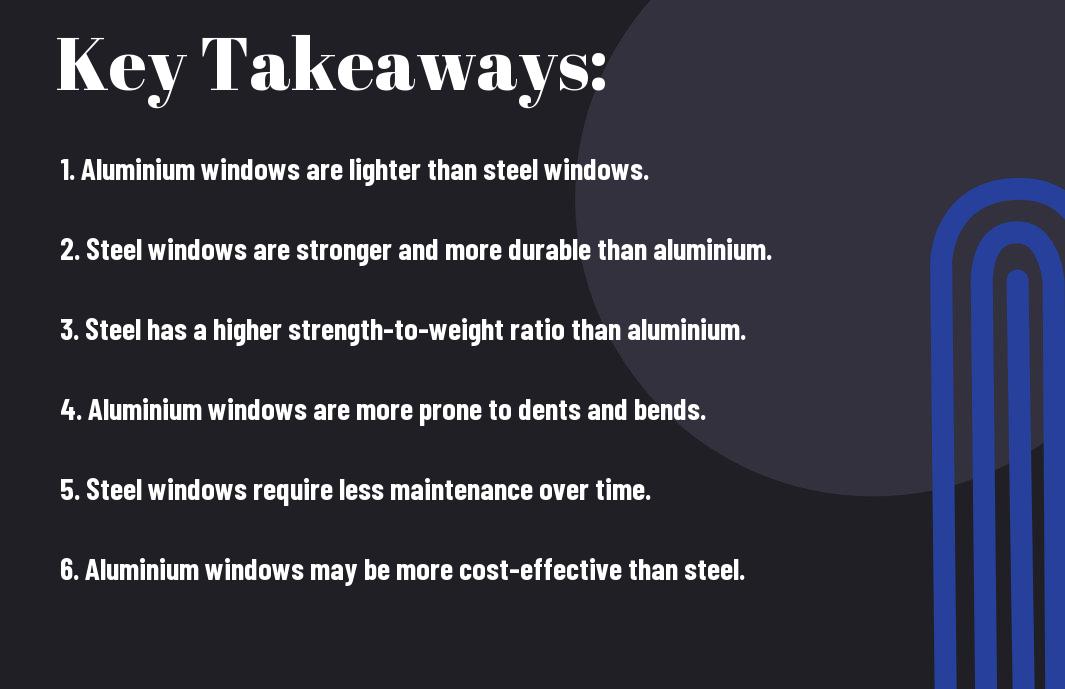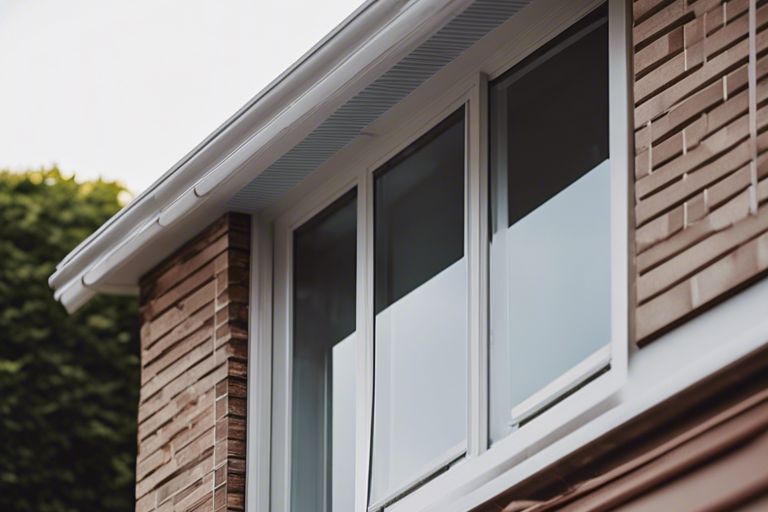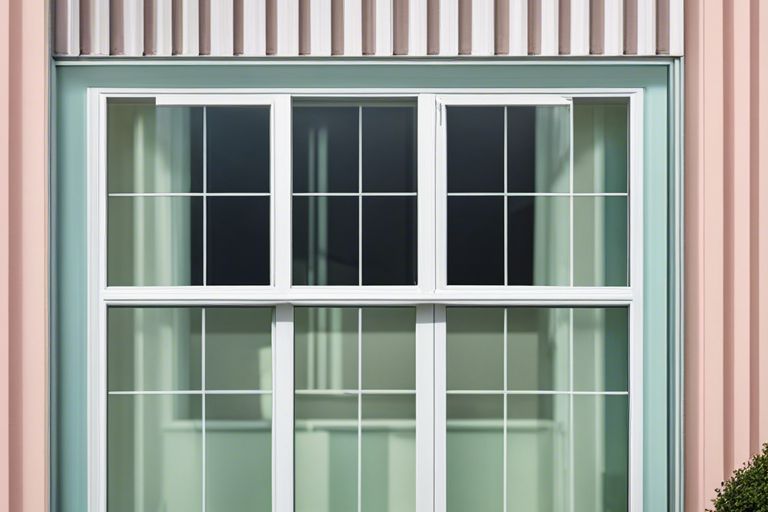Are you considering aluminium or steel windows for your property and wondering which material provides the best strength and durability? When it comes to comparing the strength of aluminium and steel windows, there are several crucial factors to consider. In this blog post, we will delve into the essential details, from the strength-to-weight ratio to the overall durability, so you can make an informed decision for your project.
Key Takeaways:
- Aluminium windows are lighter and more resistant to corrosion compared to steel, making them a popular choice for modern buildings.
- Steel windows are known for their superior strength and durability, making them ideal for heavy-duty applications such as industrial buildings and high-security facilities.
- It is important to carefully consider the specific requirements of a project in order to determine whether aluminium or steel windows are the best option in terms of strength and performance.

Properties of Aluminium Windows
When comparing aluminium windows to steel, it’s important to understand the properties that make aluminium a popular choice for windows. Aluminium is a strong, durable and lightweight material that offers a number of advantages for window construction. This makes it an attractive option for homeowners looking for strength and reliability in their windows. If you want to learn more about the differences between aluminium and steel windows, you can read this informative blog post here.
Composition and Structural Characteristics
Aluminium windows are made from a combination of aluminium, which is known for its high strength-to-weight ratio, and other elements such as magnesium, silicon, and copper. This composition gives aluminium windows a high level of structural integrity, making them a reliable choice for your home. The structural characteristics of aluminium, including its resistance to corrosion and ability to withstand harsh environmental conditions, make it a durable and long-lasting option for windows.
Advantages of Aluminium Strength
One of the key advantages of aluminium windows is their strength. Aluminium is inherently strong, and when used in window construction, it provides a high level of security and peace of mind for you and your family. The strength of aluminium also allows for the creation of slimline frames, maximising the glass area and providing you with unobstructed views of the outdoors. With aluminium windows, you can be confident in the safety and security of your home, knowing that they can withstand the test of time and offer lasting protection.
Characteristics of Steel Windows
When it comes to choosing between aluminium and steel windows, it is important to understand the characteristics of steel windows. Steel windows offer a unique set of features and benefits that make them a popular choice for many homeowners and architects.
Durability and Tensile Strength
One of the key advantages of steel windows is their durability and tensile strength. Steel is an incredibly strong material, capable of withstanding extreme weather conditions and providing long-term structural integrity. This means that your steel windows will be highly resistant to warping, bending, or cracking, giving you peace of mind that they will stand the test of time.
The Appeal of Steel in Modern Architecture
In addition to their strength, steel windows also offer stylistic appeal in modern architecture. The sleek, minimalist design of steel frames complements contemporary design trends, adding a touch of elegance and sophistication to your property. Steel windows can enhance the overall aesthetic of your home, giving it a timeless and luxurious look that will never go out of style.
Comparative Analysis
When building a new home or renovating an existing one, choosing the right type of windows is an important decision. The debate between aluminium and steel windows has been ongoing, and it’s crucial to understand the strengths and weaknesses of each material before making a choice. For a more in-depth look at this topic, you can check out this article on Aluminum vs. Steel Windows.
Now let’s compare the two materials in terms of strength:
Measuring Strength and Endurance
When it comes to strength, steel windows have traditionally been considered the stronger option. They have a higher tensile strength and are more resistant to impact and forced entry. However, recent advancements in aluminium window technology have closed the gap significantly. High-quality aluminium windows now boast impressive strength and durability, making them a viable alternative to steel. By carefully considering the specific requirements of your project, you can confidently choose either material knowing that both offer the strength and endurance needed to withstand the test of time.
Thermal Efficiency and Maintenance
Aside from strength, thermal efficiency and maintenance are important factors to consider when comparing aluminium and steel windows. Aluminium is a highly conductive material, which historically made it a poor choice in terms of thermal insulation. However, modern aluminium window designs incorporate thermal breaks and other innovative features to drastically improve their energy efficiency. On the other hand, steel windows require more maintenance to prevent rust and corrosion. You can enhance the performance of steel windows by opting for galvanised or stainless steel, but they may still require more upkeep compared to aluminium. It’s essential to weigh these factors against your specific needs and priorities to make the best decision for your project.
Economical and Environmental Considerations
When considering the strength of aluminium windows compared to steel, it’s crucial to take into account the economical and environmental aspects. Aluminium vs Steel Windows and Doors – How Do They Stack Up provides a detailed comparison on this topic, enabling you to make an informed decision that suits your specific needs.
Lifecycle and Cost Analysis
When it comes to cost, aluminium windows are generally more affordable than steel windows. Additionally, aluminium is less energy-intensive to manufacture, making it a more sustainable choice. Although steel windows may have a longer lifespan, the cost and energy savings from aluminium windows make them a more economical option in the long run.
Impact on Sustainability and Recycling
In terms of sustainability, aluminium has a significant advantage over steel due to its high recyclability. Aluminium can be recycled repeatedly without losing its quality, making it a more sustainable choice for your windows. On the other hand, steel windows can have a greater impact on the environment due to the energy-intensive nature of their production and their lower recyclability.
Consider these economical and environmental factors when comparing the strength of aluminium windows to steel. Ultimately, your decision should not only be based on strength but also on the long-term cost and environmental impact of your choice.
Summing up
When comparing aluminium windows to steel windows in terms of strength, it is clear that steel is the stronger material. If you are looking for windows that offer maximum strength and durability, steel may be the better option for you. However, if you are more concerned about factors such as corrosion resistance and design flexibility, aluminium windows may be a better choice for your needs. Ultimately, the decision between aluminium and steel windows will depend on your specific requirements and priorities.
FAQ
Q: What are the main differences in strength between aluminium windows and steel windows?
A: Aluminium windows are strong, lightweight and resistant to corrosion, making them an ideal choice for modern buildings. Steel windows, on the other hand, are heavier and have a higher strength, making them suitable for traditional or industrial designs.
Q: Which material is more durable in terms of strength, aluminium or steel?
A: Steel is generally considered to be more durable than aluminium in terms of strength, as it has a higher tensile and yield strength. However, modern advances in aluminium alloy technology have improved its strength and durability, making it a viable alternative to steel in many applications.
Q: Can aluminium windows be as strong as steel windows?
A: With the use of high-strength aluminium alloys and advanced manufacturing techniques, aluminium windows can now achieve comparable strength to steel windows. This allows for the construction of large, structurally sound window systems using aluminium frames.
Q: Are there any advantages to using aluminium windows over steel windows in terms of strength?
A: Aluminium windows offer the advantage of being lightweight yet strong, allowing for easier installation and reduced structural load on the building. They are also highly resistant to corrosion, making them suitable for coastal or industrial environments.
Q: In what applications would steel windows be a better choice in terms of strength?
A: Steel windows are well-suited for applications requiring high strength and durability, such as in industrial buildings, heritage properties, or areas with high security requirements. Their robustness and structural integrity make them an ideal choice for such settings.
Q: Can aluminium windows provide sufficient strength for large or custom-designed window structures?
A: Yes, modern aluminium window systems are engineered to provide strength and stability for large openings and custom designs. They are often used in contemporary architectural projects that demand expansive glass walls and complex window configurations.
Q: What factors should be considered when choosing between aluminium and steel windows in terms of strength?
A: When considering strength, factors such as building design, structural requirements, environmental conditions, maintenance needs, and aesthetic preferences should all be taken into account. Consulting with a qualified architect or structural engineer is advisable to ensure the appropriate window material is selected for the specific application.






